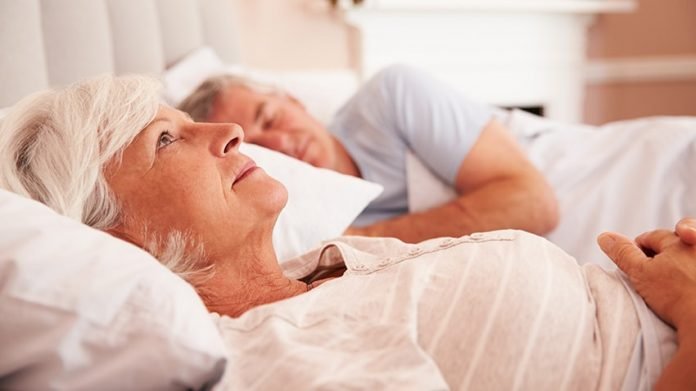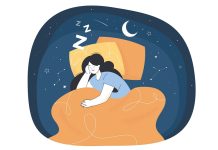
In the National Poll on Healthy Aging, researchers found that many people 65 and older take prescription sleep aids — even though guidelines warn against it.
In all, 46 percent of those polled had trouble falling asleep one or more nights a week. Fifteen percent of the poll respondents said they had trouble falling asleep three or more nights a week.
More than a third have resorted to medication to help them doze off at night.
The team found most poll respondents said they hadn’t talked to a doctor about their sleep, even though more than a third said their sleep posed a problem.
Half of those surveyed believe — incorrectly — that sleep problems are simply a part of growing older.
The researchers found that people who turn to medications may not realize that prescription, over-the-counter and even “natural” sleep aids carry health risks, especially for older adults, either alone or in combination with other substances.
In fact, national guidelines strongly warn against prescription sleep medicine use by people over age 65.
Despite this, the nationally representative poll of people ages 65 to 80 found that 8 percent of older people take prescription sleep medicine regularly or occasionally.
Among those who report sleep troubles three or more nights a week, 23 percent use a prescription sleep aid.
Most had been taking them for years. Manufacturers and the Food and Drug Administration say such drugs are only for short-term use.
That’s why doctor-patient conversation is crucial.
The team says the first step for anyone having trouble sleeping on a regular basis should be to talk to a doctor about it.
The poll shows that nearly two-thirds of those who did so got helpful advice — but a large percentage of those with sleep problems simply weren’t talking about it.
They note that nonmedication-based sleep habits are the first choice for improving sleep in older people.
Other health conditions can contribute to sleep difficulties: Twenty-three percent of poll respondents who had trouble sleeping said it was because of pain.
And 40 percent of those with frequent sleep problems said their overall health was fair or poor. Other reasons for sleep troubles included having to get up to use the bathroom at night, and worry or stress.
Insomnia and other irregular sleep patterns can interfere with daytime functioning and are associated with memory issues, depression and an increased risk of falls and accidents.
Even so, many said they didn’t see sleep issues as a health problem. In fact, this belief was the most common reason poll respondents gave for not talking to a doctor about sleep.
This also highlights the need for doctors to ask older patients about their sleep habits and what they’re doing to address any issues they are having.
If you care about sleep, please read studies about how to sleep to prevent Alzheimer’s disease, and findings of drugs that can lower severity of sleep apnea by one third.
For more information about sleep, please see recent studies about how to sleep well when you are getting old, and results showing that pink noise may boost deep sleep, improve memory in older people.
The study was conducted by Preeti Malani et al.
Copyright © 2022 Knowridge Science Report. All rights reserved.



